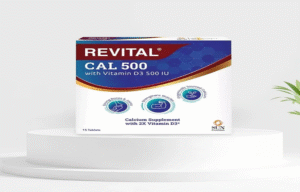Best Alternatives to the Various Over-The-Counter Drugs

Whether you are suffering from allergies, pain or fever, OTC drugs help relieve your symptoms without the need for a doctor’s prescription. In this article, we will list the best alternatives to the various over-the-counter drugs that are available in your local pharmacy.
Adderall is a popular drug that helps college students, athletes and professionals concentrate on their work. But its addictive nature makes it dangerous for some people to use.
1. Ibuprofen
Ibuprofen is a medicine that belongs to a class of drugs called nonsteroidal anti-inflammatory drugs (NSAIDs). These medicines reduce pain, fever, and inflammation by blocking an enzyme that makes prostaglandins.
NSAIDs are used for many diseases, such as arthritis, menstrual cramps (dysmenorrhea), and the common cold. NSAIDs can also help relieve pain from a fractured bone or broken joint.
But they can also cause stomach and intestinal problems, including ulcers and bleeding. These problems may develop at any time during treatment and can happen without warning symptoms.
If you think you’ve taken too much ibuprofen, go to the hospital right away. Some people feel sick, vomit, have abdominal pain or ringing in the ears (tinnitus) after taking too much.
2. Acetaminophen
Acetaminophen, or Tylenol, is a pain reliever that works to reduce fever and relieve minor aches and pains. It is safer than other pain medicines, such as nonsteroidal anti-inflammatory drugs (NSAIDs), because it does not cause stomach problems and bleeding.
It is also effective in treating mild forms of arthritis and pain caused by a sports injury or other conditions. It can also be used in combination with opioids to help manage osteoarthritis and back pain.
But take acetaminophen only as directed and never take more than 4,000 mg in 24 hours. Too much can damage the liver. This condition, called hepatotoxicity, can lead to liver failure and sometimes death.
3. H2 blockers
H2 blockers are a class of drugs that help limit acid production in the stomach. They come in over-the-counter and prescription strength.
They work by blocking specific receptors on the surface of stomach cells that release acid. This reduces the amount of stomach acid secreted and prevents damage to the lining.
These medications are usually taken orally with the first meal of the day. It takes 30 to 90 minutes for them to work, and the benefits may last several hours.
4. Pepcid
Pepcid is an H2 blocker, which is a class of medications that help reduce stomach acid. It works by blocking a chemical called histamine that signals the stomach to make acid.
This medication can be taken at any time during the day, and it starts working to relieve heartburn symptoms within an hour. It also controls acid for up to 12 hours.
Prilosec is an antacid that is available over the counter and by prescription. It works to reduce stomach acid, but it takes 1-4 days before it will start providing full relief from reflux symptoms.
Famotidine is an oral medication that is used to treat heartburn, GERD, and stomach ulcers. It is also used to control the production of excess stomach acid in conditions such as Zollinger-Ellison syndrome.
5. Tagamet
Tagamet, a histamine H2 receptor antagonist (H2RA), is used to treat heartburn, acid reflux and stomach ulcers. It is a common prescription drug in the United States.
Pepcid and Tagamet are H2 blockers while Protonix is a proton pump inhibitor (PPI). Both medications decrease the amount of stomach acid released into the stomach and duodenum, which helps to prevent or heal peptic ulcers and gastroesophageal reflux disease.
It has been reported to cause mental confusion or hallucinations in some people who take it long-term. Other side effects include breast enlargement in men, rash, hair loss, pneumonia, changes in heart rhythm and liver problems. It also interacts with certain other drugs, so tell your doctor about all the medicines you are taking.






